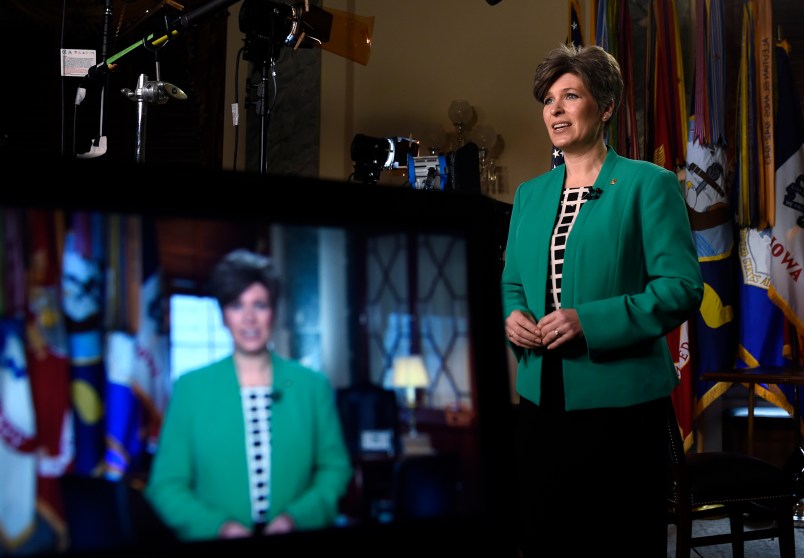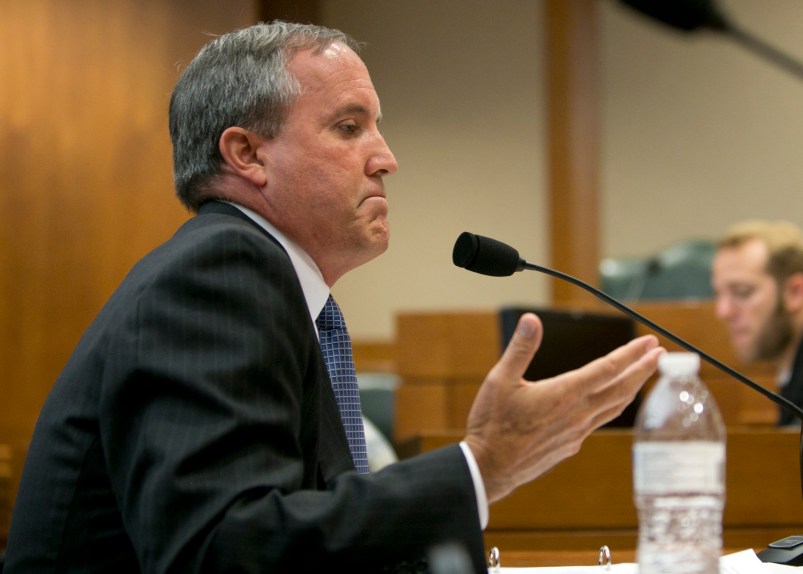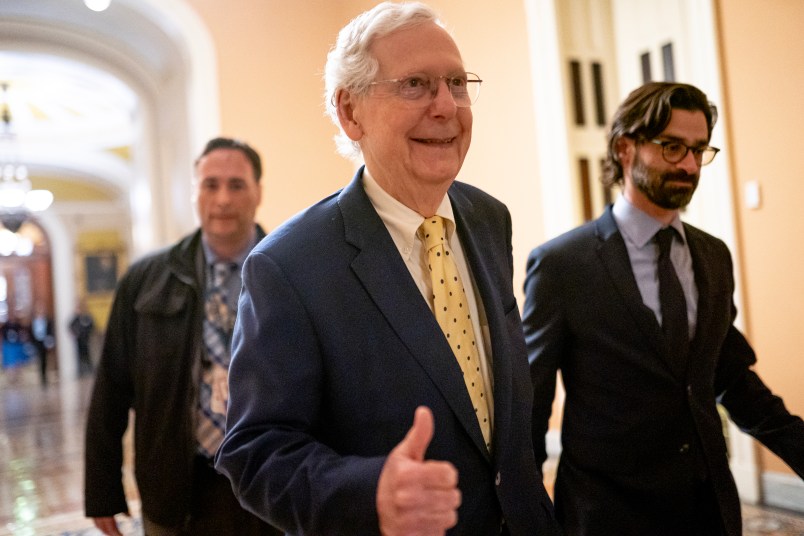Barack Obama’s sixth State of the Union Address managed to draw attention away from the punditocracy’s recent obsession: the newly Republican-controlled Congress.
Republicans were very much bystanders last night. Obama did not allude to the midterm elections nor acknowledge the GOP takeover of the Senate. He did not treat Republican attacks on his use of executive authority as some sort of clash of the titans, and briskly bundled most of his veto threats into a single paragraph. His specific economic policy proposals (packaged as “middle class economics”) were exceedingly well-tested and very popular, and because Republicans oppose them all, he left them sitting on their hands.
And he managed to diminish recent GOP complaints and demands, dismissing the Keystone XL pipeline as just another infrastructure project, mocking the Cuba policies he is discarding as archaic, and describing his immigration actions as the exasperated expedient of a president tired of Republican divisions. Obama also probably wrong-footed Republicans by giving so little time to the tax proposals that got so much attention in the last few days. There was no hard-edged “populist” appeal to denounce as “class warfare” or “income redistribution.”
When Joni Ernst began her response to Obama, my initial reaction was that it was smart for Republicans to change the topic to their 2014 campaign message instead of trying to respond to Obama. But she probably lost a big chunk of the audience right off the bat with an extended version of her much-chewed-over campaign autobiography. Her famously “folksy” delivery also seemed less appropriate to the context of a State of the Union Address than to her hog castration-centered 2014 campaign message.
Worse yet, I got the sense Ernst’s scriptwriters thought her “story” was an adequate response to the craving for action to deal with economic inequality: if a “normal Iowan” like her could get to the Senate, then, by golly, everybody should cheer up! So while Ernst’s response was better than that of the most comparable example, Bobby Jindal’s widely mocked 2009 effort, it was similarly empty. Here was the bulk of her economic policy pitch:
We see our neighbors agonize over stagnant wages and lost jobs. We see the hurt caused by canceled healthcare plans and higher monthly insurance bills. We see too many moms and dads put their own dreams on hold while growing more fearful about the kind of future they’ll be able to leave to their children.
Americans have been hurting, but when we demanded solutions, too often Washington responded with the same stale mindset that led to failed policies like Obamacare. It’s a mindset that gave us political talking points, not serious solutions.
That’s why the new Republican majority you elected started by reforming Congress to make it function again. And now, we’re working hard to pass the kind of serious job-creation ideas you deserve.
One you’ve probably heard about is the Keystone jobs bill. President Obama has been delaying this bipartisan infrastructure project for years, even though many members of his party, unions, and a strong majority of Americans support it. The President’s own State Department has said Keystone’s construction could support thousands of jobs and pump billions into our economy, and do it with minimal environmental impact.
We worked with Democrats to pass this bill through the House. We’re doing the same now in the Senate.
President Obama will soon have a decision to make: will he sign the bill, or block good American jobs?
That’s a lot of words for a pipeline. By contrast, the Republican feared by so many of his partisan colleagues, Rand Paul, served up an unsolicited response that sounded downright Ciceronian when compared to the “official” response, stocked with equally passionate attacks on poverty and anti-poverty policy, inadequate health care and health care reform, and foreign adversaries and foreign policy “overreach.” Paul even found time to warm up old chestnuts like a balanced budget and term limits.
What the evening indicated is that the GOP that came out of the November midterms so full of confidence and ready to put Barack Obama in his place continues to be off-balance and divided when it’s not simply opposing whatever the president proposes. And as the 2016 Republican presidential nominating process heats up—beginning just a few days from now with Rep. Steve King’s candidate vetting exercise in Des Moines, the so-called Iowa Freedom Summit—the vague pieties of King’s junior U.S. Senator tonight just won’t cut it.
Ed Kilgore is the principal blogger for Washington Monthly’s Political Animal blog, Managing Editor of The Democratic Strategist, and a Senior Fellow at the Progressive Policy Institute. Earlier he worked for three governors and a U.S. Senator. He can be followed on Twitter at @ed_kilgore.









